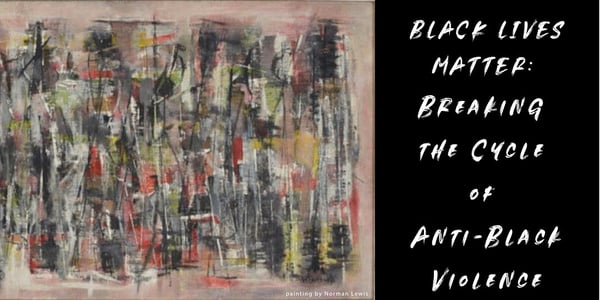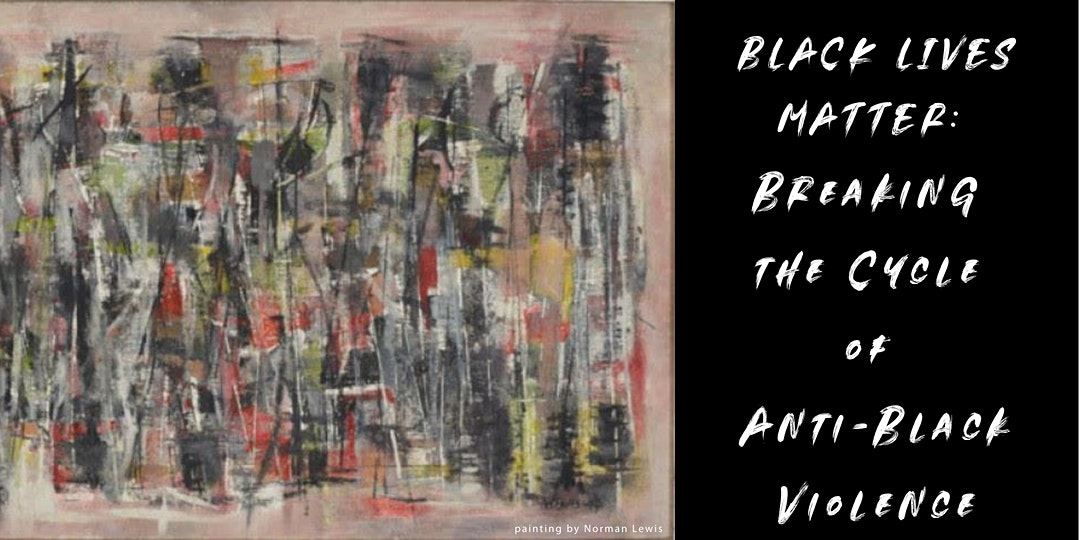Changing the Conversation. Creating Solidarity.

The following post was contributed by Kroc School Professor of Practice Michael Fryer.
“Just get the green ones please, daddy”, asked my 6-year old daughter Eloise as we were working on a craft project. I duly obliged and gathered together all the green squares. “You did it again, daddy!!” she exclaimed with a smile as she looked at what I gave her. “That’s a mix of green and brown!”
You see, I’m color blind. Red/green color blind to be precise. I’m fine with primary colors but get very confused by shades, especially when they’re all mixed in with each other. I found out I was color blind when I was about her age and was doing a craft activity at elementary school involving different color threads. I got told off by the teacher for mixing colors up and, after going home and telling my parents, my father’s scientific curiosity led him to do the Ishihara color test on myself and my brother. Faced with a circle of multi-colored dots, we’d see the number 2 while my sister and parents saw 29. What to them was clearly the number 56 was merely a blur of color to the two of us. Along with a love of history, our maternal grandfather had also passed onto us his color blindness. It was part of our inheritance.
On so many different levels, I don’t see things exactly the same way as you do. The truth is, we all live in our own realities. The invitation sitting at the heart of all authentic peace work is a call to step out of that reality in order to understand someone else’s. The accompanying invitation is to take a closer look at our own. Nothing about either of those is easy or particularly comfortable. Both are necessary.
Co-Leading the Kroc IPJ’s Summer Dialogue Series
These ideas helped shape this summer’s dialogue series from the Kroc Institute for Peace and Justice: “Changing the Conversation. Creating Solidarity.” Over three sessions in July and August, the Kroc IPJ engaged with some of the most important issues facing the world through hosting a series of conversations for people within the Kroc School community. Everyone taking part invested time in exploring what it might actually look like for a Black life to matter, the questions we need to engage with if we are to transform systemic racism, and how to recognize and engage with the existing inequalities that the Covid-19 pandemic has highlighted and exacerbated.
I had the honor of co-facilitating these conversations with KishaLynn Elliott, an author, speaker, certified coach, facilitator, restorative practices trainer and Director of Special Projects at the Monarch School in San Diego. We spent many hours exploring how best to shape these dialogues. Much of that time was sharing our own personal experiences. Here was a white, British man speaking with a Black American woman about life. To say that our stories were different would be a huge understatement. I struggled to think of direct, negative interactions with the police. KishaLynn didn’t know where to begin. I can count the times I’ve been the subject of racial abuse on the fingers of one hand. KishaLynn could borrow all our hands and still not have enough fingers. Our one-on-one conversations were rich microcosms of those we curated with the wider Kroc School community.
Starting By Asking Difficult and Important Questions
Over the course of these dialogues with current students, incoming students, alumni, faculty and friends of the Kroc School, here are some of the questions we engaged with:
- Why are conversations about race difficult?
- What do peace and justice actually mean in the context of Black Lives Matter?
- What are some ways you have been harmed by systemic racism?
- What are some ways you have benefited from systemic racism?
- What questions do we need to reflect on at the Kroc School around racism and systemic oppression?
- What responsibilities do we have, individually and as an institution, to address and transform these inequalities?
- What inequalities are you witnessing or experiencing personally or within your community?
- What are the implications of allowing these inequalities to remain unresolved?
There are no easy answers here. Any answers that do exist are to be found in conversations rooted in generosity of spirit, compassionate curiosity, hospitality towards difference, a humble appreciation that we each have a lot to learn, and being open to someone, perhaps clumsily, fumbling towards a new truth.
Some of us were newcomers to what, for others, are old and sadly ongoing conversations. Some of us felt it was safer to just stay silent for fear of causing offense or betraying our own lack of knowledge. Some of us felt we’d already said too much and it was time for someone else to share. Some of us felt encouraged that we were talking about these issues. Some of us felt frustrated that we weren’t talking enough. Some of us were tired. Some of us were energized. Some of us were embarrassed by the privilege we were born with. Some of us didn’t know where to start. All of us felt that it’s not an option to do nothing and that these kinds of dialogues are of huge importance. All of us agreed that they need to continue.
Noticing Things in Ourselves and Others
At the heart of building peace is taking time to notice things. My favorite question over the past year has been, “What have I missed?” I like it because it’s an invitation for someone to fill in the gaps that exist alongside my own limited experiences and perspectives. It’s a recognition that there are plenty of things I still need to learn. It’s an acknowledgment that my reality is not the only one. I can’t reach those understandings unless I’m willing to have an honest conversation with someone courageous enough to join me in that mutual vulnerability.
Both myself and KishaLynn are parents of small children. It was impossible not to think of them as our dialogues on these issues evolved and unfolded. Their presence was woven into the conversations we curated with the Kroc School community this summer. What kind of society will we leave for them? As we share and listen to each other’s stories, what legacy will emerge that will help shape their realities?
Unlike with a genetic disposition, this is the kind of inheritance we can choose not to pass to the next generation.
__
If you’re considering how to shape more peaceful and just societies, explore the Kroc School’s graduate programs.
Contact:
Justin Prugh
jprugh@sandiego.edu
(619) 260-7573

About the Author
The Joan B. Kroc School of Peace Studies (Kroc School) at the University of San Diego is the global hub for peacebuilding and social innovation. Founded in 2007, the Kroc School equips the next generation of innovative changemakers to shape more peaceful and just societies. We offer master's degrees in peace and justice, social innovation, humanitarian action, conflict management and resolution, and a dual degree in peace and law — programs that have attracted diverse and dynamic students from more than 50 countries. In addition to our graduate programs, the Kroc School is home to the Kroc Institute for Peace and Justice (Kroc IPJ). Founded in 2001, the Institute supports positive change beyond the classroom. Through groundbreaking research, experiential learning, and forward-thinking programs, the Kroc School and Kroc IPJ are shaping a future in which peaceful co-existence is the new normal.






